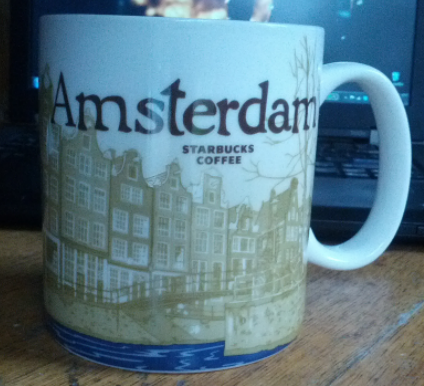 So much happens each and every week that it’s hard to keep up sometimes. Here are some of the tabs that are open in my browser this morning along with some random thoughts….
So much happens each and every week that it’s hard to keep up sometimes. Here are some of the tabs that are open in my browser this morning along with some random thoughts….
The coffee mug to the right comes straight from Amsterdam. I stopped there back in November 2011 on my way to Germany on a work trip. It’s a dirty city with a weird vibe to it. Everyone smokes and you better watch your butt or you’re likely to get run down by a bicycle, which appears to be a popular form of transportation. I walked through the Red Light District just to say that I’ve seen it. It was disturbing and depressing. It’s sad to see that kind of thing in my opinion.  Overall I didn’t like Amsterdam. You can have it. By the way, that’s a pretty big coffee mug. It hold a lot of coffee.
(more…)



